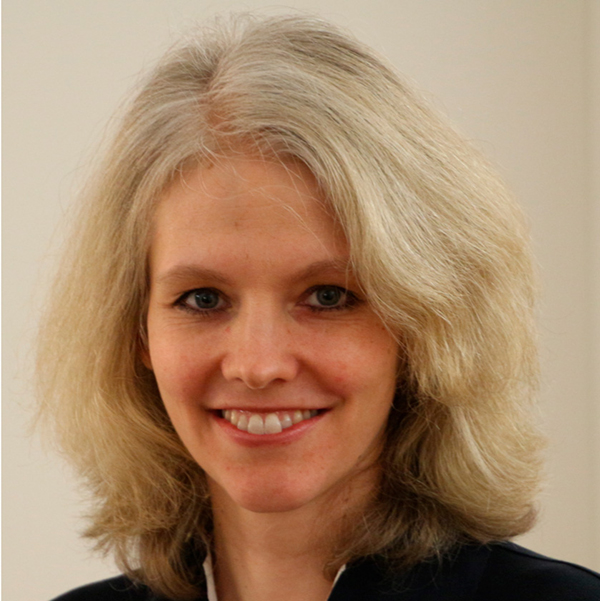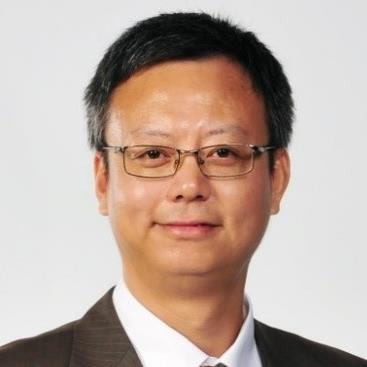Nature Conferences - Chemistry of 2D Materials
Speakers

Pulickel Ajayan
Rice University, USA
Pulickel M. Ajayan is a pioneer in the area of nanotechnology. He has published more than 1100 journal papers earning more than 175,000 citations and h-index of ~200 (google scholar). His work covers diverse areas of nanomaterials including nanoparticles, nanotubes, 2D materials, nanocomposite, energy storage materials and 3D printing.
Read More 

Alicia Forment-Aliaga
University of Valencia, Spain
Alicia Forment-Aliaga (Valencia, 1976) is a researcher at the Molecular Science Institute (ICMol) and a senior lecturer in the School of Chemistry at the University of Valencia (UVEG), Spain. She graduated in Chemistry and carried out her PhD on molecular magnetism at the UVEG, supervised by Prof. E. Coronado and Prof. F.M. Romero.
Read More 

Daria Andreeva-Baeumler
The National University of Singapore, Singapore
Alicia Forment-Aliaga (Valencia, 1976) is a researcher at the Molecular Science Institute (ICMol) and a senior lecturer in the School of Chemistry at the University of Valencia (UVEG), Spain. She graduated in Chemistry and carried out her PhD on molecular magnetism at the UVEG, supervised by Prof. E. Coronado and Prof. F.M. Romero.
Read More 

Claudia Backes
Heidelberg University, Germany
Claudia is Chair Professor of Physical Chemistry of Nanomaterials at Kassel. Claudia is a chemist by training and has received her Ph.D with honors in 2011 from the University of Erlangen, Germany working under the supervision of Andreas Hirsch.
Read More 

Marie-Laure Bocquet
Ecole Normale Supérieure, France
Marie-Laure Bocquet (born 1968) graduated from the Ecole Normale Supérieure de Lyon in 1993, performed her phD about the simulation of STM images under the supervision of Philippe Sautet in the Chemistry Laboratory of ENS Lyon.
Read More 

Cinzia Casiraghi
University of Manchester, UK
Prof Casiraghi holds a Chair in Nanoscience at the Department of Chemistry, University of Manchester (UK). She received her B.Sc. and M.Sc. in Nuclear Engineering from Politecnico di Milano (Italy) and her Ph.D. in Electrical Engineering from the University of Cambridge (UK). In 2005, she was awarded with an Oppenheimer Early Career Research Fellowship, followed by the Humboldt Research Fellowship and the prestigious Kovalevskaja Award (1.5M Euro). In 2010 she joined the School of chemistry at the University of Manchester. Her current research work is focused on the development of biocompatible 2D inks and their use in printed electronics and biomedical applications.
Read More 

Huiming Cheng
Institute of Metal Research, Chinese Academy of Sciences, China
Prof. Hui-Ming Cheng graduated from Hunan University, China in 1984 and received his Ph. D in 1992 from Institute of Metal Research, Chinese Academy of Sciences (IMR CAS). He is the director of both the Advanced Carbon Research Division of Shenyang National Laboratory for Materials Science, IMR CAS since 2001...
Read More 

Manish Chhowalla
University of Cambridge, UK
Manish Chhowalla is the Goldsmiths’ Professor of Materials Science at the University of Cambridge. His research interests are in the fundamental studies of atomically thin two-dimensional transition metal dichalcogenides (TMDs). In particular, his group studies the optical and electronic properties of different phases of 2D TMDs. He has demonstrated that it is possible to induce phase transformations in atomically thin materials and utilize phases with disparate properties for field effect transistors, catalysis, and energy storage. Prof Chhowalla is a Fellow of the Materials Research Society, Institute of Physics, the Royal Society of Chemistry and Churchill College. He is an Associate Editor of ACS Nano.
Read More 

Camilla Coletti
Italian Institute of Technology, Italy
Camilla Coletti is a tenured Senior Scientist of the Istituto Italiano di Tecnologia (IIT) and principal investigator of the research line 2D Materials Engineering. She is the coordinator of the Center for Nanotechnology Innovation (CNI@NEST) of Pisa and of the Graphene Labs.
Read More 

Cristina Gomez-Navarro
The Universidad Autónoma de Madrid, Spain
Cristina Gomez-Navarro is a professor at the Condensed Matter Department, Faculty of Science, at the Universidad Autónoma de Madrid, Spain and serves as Steering committee of the Condensed Matter Physics Center (IFIMAC).
Read More 

Abdoulaye Djire
Texas A&M University College of Engineering, USA
Dr. Abdoulaye Djire is an Assistant Professor in the Department of Chemical Engineering and the Department of Materials Science and Engineering (affiliated) at Texas A&M University. Dr. Djire received his Ph.D. in Chemical Engineering from the University of Michigan and completed his postdoctoral training in the Chemistry and Nanoscience Center at the National Renewable Energy Laboratory (NREL). Dr. Djire is the recipient of the 2019 DuPont GOLD Award. Dr. Djire’s research focuses on understanding the structure-function relationships controlling the reactivity of 2D MXenes for applications in energy storage and conversion.
Read More 

Xiangfeng Duan
University of California, Los Angeles, USA
Dr. Duan received his B.S. Degree from University of Science and Technology of China in 1997, and Ph.D. degree from Harvard University in 2002. He was a Founding Scientist and then Manager of Advanced Technology at Nanosys Inc., a nanotechnology startup founded based partly on his doctoral research.
Read More 

Maryam Ebrahimi
Lakehead University, Canada
Dr. Maryam Ebrahimi is an Assistant Professor and Tier 2 Canada Research Chair in Low-Dimensional Nanomaterials at Lakehead University, Canada.
Read More 

Xinliang Feng
TU Dresden, Germany
Prof. Feng is the head of the Chair of Molecular Functional Materials at Technische Universität Dresden, and a director at the Max-Planck Institute of Microstructure Physics. He has published more than 650 research articles which have attracted around 80000 citations with H-index of 140 (Google Scholar).
Read More 

Hongjun Gao
Institute of Physics, Chinese Academy of Sciences, China
Professor GAO Hongjun, an experimental condensed matter physicist, is a Group Leader in the Institute of Physics, Chinese Academy of Sciences (CAS). He also serves as the Dean, School of Physical Sciences, U-CAS.
Read More 

Yury Gogotsi
Drexel University, USA
Dr. Yury Gogotsi is Distinguished University Professor and Charles T. and Ruth M. Bach Professor of Materials Science and Engineering at Drexel University. He also serves as Director of the A.J. Drexel Nanomaterials Institute. He received his MS (1984) and PhD (1986) from Kiev Polytechnic and a DSc degree from the Ukrainian Academy of Sciences in 1995.
Read More 

Liv Hornekaer
Aarhus University, Denmark
Liv Hornekær holds a professor position at Aarhus University, where she also heads the Center of Excellence for Interstellar Catalysis. She received her PhD from Aarhus University in 2002, held a Carlsberg fellowship at University of Southern Denmark, followed by Steno and Skou fellowships at Aarhus University.
Read More 

Liying Jiao
Tsinghua University, China
Liying Jiao is currently a Professor in the Department of Chemistry, Tsinghua University. She received her B.S. from Shandong University in 2003, and her Ph.D from Peking University in 2008. She performed postdoctoral research in Stanford University during 2008-2012. She joined the Tsinghua faculty in 2012 as an Associate Professor and was promoted to Full Professor in 2021. Her research is focused on the synthesis and electronic devices of low dimensional materials.
Read More 

Ute Kaiser
Ulm University, Germany
Ute Kaiser received her Diploma in Crystallography, her PhD in Physics from the Humboldt University Berlin and her Habilitation in Experimental Physics from the Friedrich-Schiller University, Jena, Germany, in 2002. Since 2004 she is full professor at Ulm University in the Physics Department and Head of Ulm’s Materials Science Electron Microscopy Centre.
Read More 

Young Hee Lee
Sungkyunkwan University, South Korea
Prof. Lee has been a full professor of the Physics Department at SKKU, since 2001. He received Ph. D. from Kent State University in Ohio (1986) in physics. Prior to joining SKKU in 2001, Prof. Lee was a full professor in the Physics Department at Chonbuk National University since 1986.
Read More 

Zhongfan Liu
Peking University, China
Zhongfan Liu completed his PhD from University of Tokyo in 1990 and postdoctoral study from the same university and Institute for Molecular Science (IMS), Japan. His current research interests include the CVD growth, mass production and equipment manufacturing, and unique applications of graphene. He is the founding Director of Beijing Graphene Institute (BGI) and a BOYA chair professor of Peking University. He is the member of Chinese Academy of Sciences and the fellow of TWAS.
Read More 

Bettina Lotsch
Ludwig Maximillians University
Bettina Valeska Lotsch is Director of the Nanochemistry Department at the Max Planck Institute for Solid State Research (MPI-FKF) in Stuttgart, Germany. She studied Chemistry at the Ludwig-Maximilians-Universität München (LMU) and the University of Oxford and received her PhD from LMU Munich in 2006.
Read More 

Kian Ping Loh
National University of Singapore, Singapore
Kian Ping Loh completed his Ph.D degree in Physical and Theoretical Chemistry, University of Oxford in 1996. He is currently the Provost’s Chair professor in the National University of Singapore and also the Head of 2D Materials Research in the Centre for Advanced 2D Materials.
Read More 

Cecilia Mattevi
Imperial College London, UK
Dr. Cecilia Mattevi is a Reader and Royal Society University Research Fellow in the Department of Materials at Imperial College London. Dr Cecilia Mattevi received her Laurea degree in Materials Science and a PhD in Materials Science from the University of Padua.
Read More 

Katherine Mirica
Dartmouth College, USA
Katherine was born and raised in Ukraine and emigrated with her family to the United States as a high school student. She obtained her B.S. in Chemistry at Boston College, where she developed a passion for Materials Chemistry, working in the laboratory of Lawrence T. Scott. She earned her Ph.D. in Chemistry from Harvard University under the guidance of George M.
Read More 

Valeria Nicolosi
Trinity College Dublin, Ireland
Professor Valeria Nicolosi is the Chair of Nanomaterials and Advanced Microscopy at the School of Chemistry in Trinity College Dublin (TCD) and a Principal Investigator in the Science Foundation Ireland Research Centres AMBER & I-Form. She is the TCD Director of the EPSRC/SFI Centre of Doctoral Training in n the Advanced Characterisation of Materials.
Read More 

Konstantin Novoselov
National University of Singapore, Singapore
Prof Sir Konstantin ‘Kostya’ Novoselov FRS was born in Russia in August 1974. He has both British and Russian citizenship. He is best known for isolating graphene at The University of Manchester in 2004, and is an expert in condensed matter physics, mesoscopic physics and nanotechnology. Every year since 2014 Kostya Novoselov is included in the list of the most highly cited researchers in the world.
Read More 

Martin Pumera
UTC Prague, Czechia
Martin Pumera is the Director of the Center for the Advanced Functional Nanorobots and a Distinguished Professor of Chemistry at the University of Chemistry and Technology, Prague, and Chief Investigator of Future Energy & Innovation Laboratory at Central European Institute of Technology, Brno, Czech Republic. He received his Ph.D. at Charles University, Czech Republic, in 2001.
Read More 

Sahar Sharifzadeh
Boston University, USA
Dr. Sahar Sharifzadeh is an Associate Professor at Boston University. She obtained her PhD from Princeton University, working under the guidance of Prof. Emily Carter, and subsequently joined the Molecular Foundry at Lawrence Berkeley National Laboratory as a postdoctoral fellow and project scientist in the group of Dr. Jeffrey Neaton. She joined Boston University in 2014 as an Assistant Professor. Prof. Sharifzadeh was awarded the Department of Energy Early Career Award in 2017, the National Science Foundation Early Career Award in 2019, and the Boston University College of Engineering Early Career Award in 2019. Her research focuses on first-principles computational modelling of materials.
Read More 

Yongfu Sun
University of Science & Technology of China (USTC)
Dr. Yongfu Sun is the full professor of materials chemistry, University of Science & Technology of China (USTC). He received his BSc from Anhui University in 2006 and PhD from USTC in 2011. After two-year postdoctoral research in National Synchrotron Radiation Laboratory, he started his independent research career at Hefei National Laboratory for Physical Sciences at Microscale, USTC since July 2013.
Read More 

Luisa Whittaker-Brooks
University of Utah, USA
Luisa Whittaker-Brooks is an Associate Professor of Chemistry at the University of Utah. Her research centers on the design of well-defined hybrid materials with controlled morphology and interfaces that serve as conduits for deterministic and coherent energy and charge transfer for applications in energy conversion, storage, and electronics.
Read More 

Boris Yakobson
Rice University, USA
Boris I. Yakobson is an expert in theory and computational modeling of materials and nanostructures, of synthesis, mechanics, defects, transport, electronics, optics. Presently, Karl F. Hasselmann Endowed Chair in Engineering, professor of Materials Science and Nano-Engineering, and professor of Chemistry, Rice University, Houston, Texas.
Read More 

Jamie Warner
The University of Texas at Austin, USA
Jamie Warner is the Hayden Head Centennial Professor in the Department of Mechanical Engineering at The University of Texas at Austin. He join UT Austin in January 2020 to lead the new Electron Microscopy Facility located in the Texas Materials Institute and the Cockrell School of Engineering.
Read More 

Hua Zhang
City University of Hong Kong, China
Dr. Hua Zhang is the Herman Hu Chair Professor of Nanomaterials at City University of Hong Kong. His current research interests focus on phase engineering of nanomaterials (PEN) and controlled epitaxial growth of heterostructures, in particular, the synthesis of ultrathin two-dimensional nanomaterials and metallic nanomaterials with unconventional crystal phases and amorphous structures, for applications in catalysis, clean energy, (opto-)electronic devices, chemical and biosensors, and water remediation.
Read More 

Yanfeng Zhang
Peking University, China
Yanfeng Zhang is a full professor of the School of Materials Science and Engineering of Peking University. She received her PhD from the Institute of Physics in the Chinese Academy of Sciences in 2005. Later on, she worked as a JSPS fellow from 2006 to 2009 in Tohoku University, Japan.
Read More 

